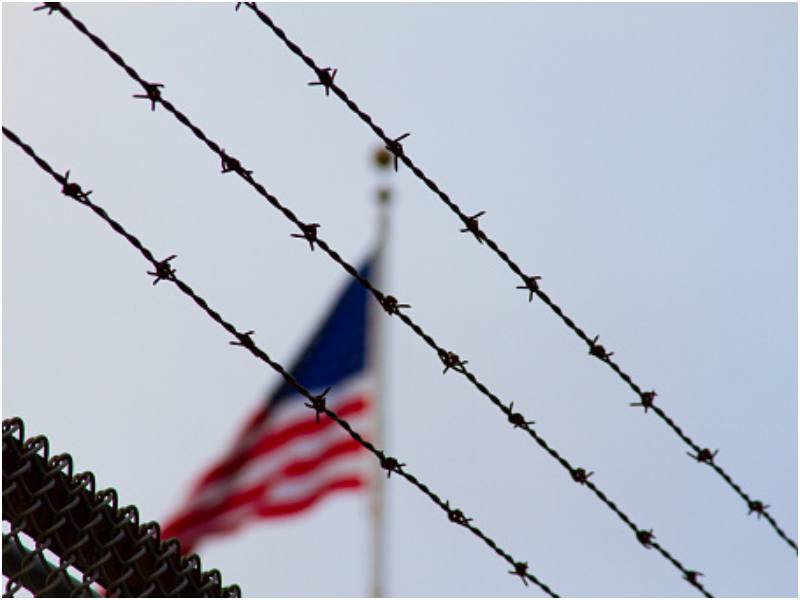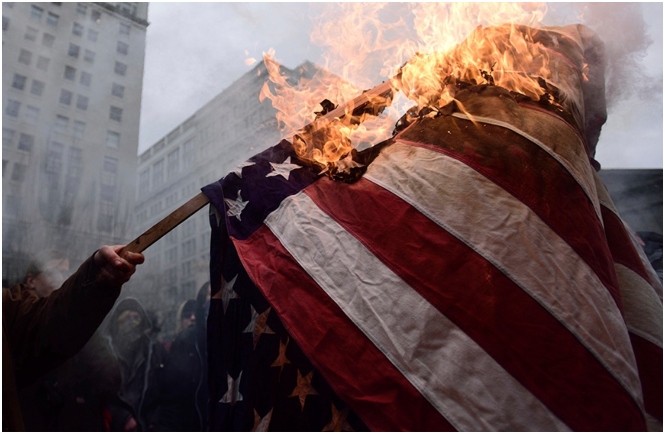President Donald Trump on Monday, August 25, signed an executive order that bans the burning of the American flag, setting up what legal scholars expect will be an immediate and contentious constitutional battle.
The order directs the U.S. Department of Justice to investigate and prosecute instances of flag burning, imposing a mandatory one-year jail sentence without parole or early release. Trump described the measure as a response to what he characterized as the act’s potential to “incite violence and riot.”
“If you burn a flag, you get one year in jail, no early exits,” Trump declared during the signing, echoing language in the order. He argued that the sight of burning the flag triggers unrest, claiming “the area goes crazy” and can lead to riots.

The order, however, directly challenges a landmark 1989 Supreme Court ruling in Texas v. Johnson, which held by a narrow 5-4 margin that flag burning constitutes symbolic speech protected under the First Amendment. In that case, the Court struck down laws criminalizing flag desecration, reasoning that government cannot prohibit expression simply because it is offensive or provocative.
Legal experts say Trump’s order will almost certainly face constitutional challenges. The Justice Department’s own role, according to an official present at the signing, would be to carefully pursue prosecutions “where prosecution wouldn’t fall afoul of the First Amendment.” That caveat, analysts note, suggests the administration is aware of the legal minefield ahead.
Historically, Congress has attempted to pass legislation and even constitutional amendments to prohibit flag burning, but all such measures have failed under judicial scrutiny. Trump’s executive order, which circumvents the legislative process, is likely to invite swift lawsuits arguing that it violates binding Supreme Court precedent.
Civil liberties advocates contend that the executive order is not only unconstitutional but also politically symbolic, designed to test the limits of executive power against settled free speech doctrine. Should a case reach the Supreme Court, it could prompt the justices to either reaffirm or reconsider decades-old precedent on the scope of First Amendment protections.
For now, the order stands as one of the most direct executive challenges to free speech jurisprudence in recent memory, setting the stage for what could be a defining legal showdown over constitutional rights.

